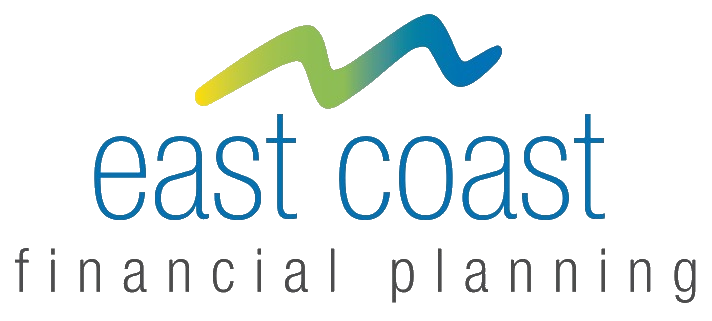Conventional wisdom used to dictate Australians were better paying off their home loans, and then, once debt-free turning their attention to building up their super. But with interest rates ramping up over the past two years, and uncertainty as to when they are likely to reduce, what’s the right strategy in the current market?

It’s one of the most common questions financial advisers get. Are clients better off putting extra money into superannuation or the mortgage? Which strategy will leave them better off over time? In the super versus mortgage debate, no two people will get the same answer – but there are some rules of thumb you can follow to work out what’s right for you.
One thing to consider is the interest rate on your home loan, in comparison to the rate of return on your super fund. As banks ramped up interest rates following the RBA hikes over the past two years, you may find that the gap between home loan interest rates and the returns you get in your super fund has potentially shrunk in comparison.
Super is also built on compounding interest. A dollar invested in super today may significantly grow over time. Keep in mind that the return you receive from your super fund in the current market may be different to returns you receive in the future. Markets go up and down and without a crystal ball, it’s impossible to accurately predict how much money you’ll make on your investment.
Each dollar going into the mortgage is from ‘after-tax’ dollars, whereas contributions into super can be made in ‘pre-tax’ dollars. For the majority of Australians, saving into super will reduce their overall tax bill – remembering that pre-tax contributions are capped at $30,000 from 1 July 2024 and taxed at 15% by the government (30% if you earn over $250,000) when they enter the fund.
So, with all that in mind, how does it stack up against paying off your home loan? There are a couple of things you need to weigh up.
Consider the size of your loan and how long you have left to pay it off
A dollar saved into your mortgage right at the beginning of a 30-year loan will have a much greater impact than a dollar saved right at the end.
The interest on a home loan is calculated daily
The more you pay off early, the less interest you pay over time. In a higher interest rate environment many homeowners, particularly those who bought a home some time ago on a variable rate, will now be paying much more each month for their home loan.
Offset or redraw facility
If you have an offset or redraw facility attached to your mortgage you can also access extra savings at call if you need them. This is different to super where you can’t touch your earnings until preservation age or certain conditions of release are met.
Don’t discount the ‘emotional’ aspect here as well. Many individuals may prefer paying off their home sooner rather than later and welcome the peace of mind that comes with clearing this debt. Only then will they feel comfortable in adding to their super.
Before making a decision, it’s also important to weigh up your stage in life, particularly your age and your appetite for risk.
Whatever strategy you choose you’ll need to regularly review your options if you’re making regular voluntary super contributions or extra mortgage repayments. As bank interest rates move and markets fluctuate, the strategy you choose today may be different from the one that is right for you in the future.
Case study where investing in super may be the best strategy
Barry is 55, single and earns $90,000 pa. He currently has a mortgage of $200,000, which he wants to pay off before he retires in 10 years’ time at age 65.
His current mortgage is as follows:
| Mortgage | $200,000 |
| Interest rate | 6.80% pa |
| Term of home loan remaining | 20 years |
| Monthly repayment (post tax) | $1,526.68 per month |
Barry has spare net income and is considering whether to:
- make additional / extra repayments to his home mortgage (in post-tax dollars) to repay his mortgage in 10 years, or
- invest the pre-tax equivalent into superannuation as salary sacrifice and use the super proceeds at retirement to pay off the mortgage.
Assuming the loan interest rate remains the same for the 10-year period, Barry will need to pay an extra $775 per month post tax to clear the mortgage at age 65.
Alternatively, Barry can invest the pre-tax equivalent of $775 per month as a salary sacrifice contribution into super. As he earns $90,000 pa, his marginal tax rate is 32% (including the 2% Medicare levy), so the pre-tax equivalent is $1,148 per month. This equals to $13,776 pa, and after allowing for the 15% contributions tax, he’ll have 85% of the contribution or $11,710 working for his super in a tax concessional environment.
To work out how much he’ll have in super in 10 years, we’re using the following super assumptions:
- The salary sacrifice contributions, when added to his employer SG contributions, remain within the $30,000 pa concessional cap.
- His super is invested in 70% growth/30% defensive assets, returning a gross return of 3.30% pa income (50% franked) and 2.81% pa growth.
- A representative fee of 0.50% pa of assets has been used.
If these assumptions remain the same over the 10-year period, Barry will have an extra $161,216 in super. His outstanding mortgage at that time is $132,662, and after he repays this balance from his super (tax free as he is over 60), he will be $28,554 in front. Of course, the outcome may be different if there are changes in interest rates and super returns in that period.
Case study where paying off the mortgage may be the best strategy
40 year old Duy and 37 year old Emma are a young professional couple who have recently purchased their first apartment.
They’re both on a marginal tax rate of 39% (including the 2% Medicare levy), and they have the capacity to direct an extra $1,000 per month into their mortgage, or alternatively, use the pre-tax equivalent to make salary sacrifice contributions to super.
Given their marginal tax rates, it would make sense mathematically to build up their super.
However, they’re planning to have their first child within the next five years, and Emma will only return to work part-time. They will need savings to cover this period, as well as assist with private school fees.
Given their need to access some savings for this event, it would be preferable to direct the extra savings towards their mortgage, and redraw it as required, rather than place it into super where access is restricted to at least age 60.
Get in touch
We can help you decide between mortgage repayments and super contributions based on your individual circumstances, life stages, and risk tolerance. Contact us to find the best option for you.
Current as at July 2024




